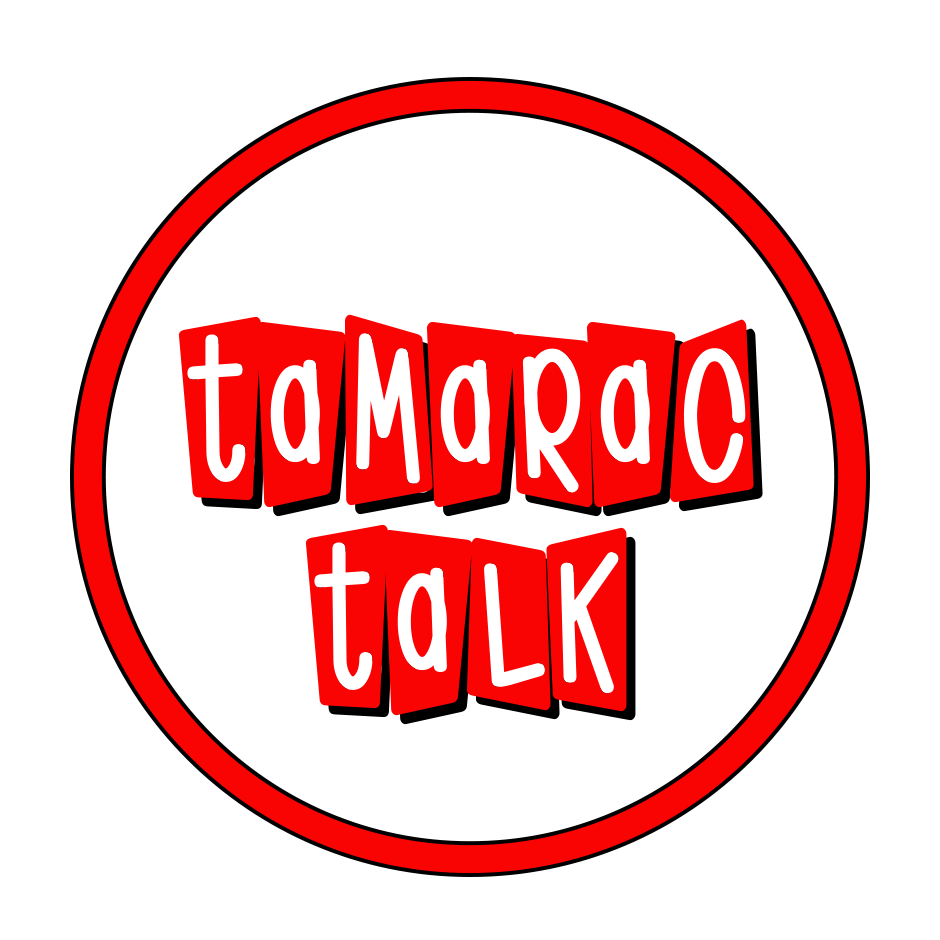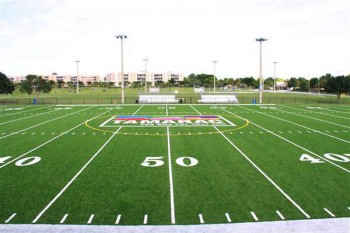By: Sharon Aron Baron
The City of Tamarac just installed a beautiful artificial turf field at the Sports Complex, and while this $600,000 field was highly recommended by city staff, no where was it mentioned during their presentation what some athletes have long suspected; that there was a connection between the cancer that they had and what was embedded in the turf.
Artificial turf fields area are a popular alternative to grass fields and are much easier to maintain. Before installing the turf, the city was paying $36,000 a year just to maintain the natural fields. This cost included labor, chemicals and fertilizer, sod replacement, irrigation and field paint. The artificial turf fields are not only are easy to maintain, they will increase playtime during our rainy summers, and make playing on them easier than natural fields because players are better protected from serious injuries like concussions.
For over five years, there have been studies to find out if there is a link between the rise in cancer cases and artificial turf athletic fields. Just recently, NBC did a report on these very same athletic fields: astroturf filled with crumb rubber from old tires. Just like our new field at the Sports Complex.
But what exactly is in those crumbs?
The crumbs embedded in the turf are pieces of shredded rubber from car and truck tires. According to the EPA, chemicals that have been found in the tires contain mercury, lead, benzene, polycyclic aromatic hydrocarbons, and arsenic, among several other chemicals, heavy metals, and carcinogens.
But was any independent research done on the safety of these fields, and did the company, Field Turf mention any of these safety concerns before the commission moved forward with it?
At the city commission workshop on March 24, 2014, the only safety concern mentioned were player’s safety when landing on the turf. Vice Mayor Michelle Gomez said she had “read research on it and was anticipating it will be great.” However, any search about artificial turf will bring up possible cancer connections.
Cancer Connection
What happens is when a player has contact with the field, the little granules of synthetic dirt fly up and scatter. They get in player’s hair, uniforms and can get inside of cuts and abrasions. For soccer players, especially goalies, who routinely fall to the ground, these crumbs can get inside of their mouths.
According to the NBC report, soccer coach Amy Griffin noticed something more than coincidental in her players. In 2009, two young goalies that she knew had been diagnosed with non-Hodgkin lymphoma. Griffin had started to visit the women and other athletes in local hospitals helping them pass the time during chemo, when one day a nurse looked down at the woman Griffin was sitting with and said, “Don’t tell me you guys are goalkeepers. You’re the fourth goalkeeper I’ve hooked up this week.”
Later, the young woman with the chemo needle in her arm said, “I just have a feeling it has something to do with those black dots.”
Since then Griffin has compiled a list of 38 soccer players – 34 of them goalies who have been diagnosed with cancer.
In another NBC report, a Washington man wonders if the synthetic turf caused his stage 4 Hodgkin lymphoma. Casey Sullivan was 21 years old and the doctor told the young soccer goalie that his chest x-rays were the worst he’d ever seen. The x-rays showed he had a tumor in his chest the size of a soccer ball.
By the time Sullivan was 16, he has played most of his games on crumb rubber turf. As a goalie, he spent hours on drills that required him to plunge into the turf again and again and the little black specks of rubber kicked up by each impact had gotten into his mouth, clothes and abrasions on his skin.
Like some other ex-soccer players, Sullivan is now wondering whether those little black granules may carry a health risk. After he saw a local TV news report about Amy Griffin, he says he had an “a-ha moment.”
“On my mind, my family’s mind, was what caused the cancer? The doctors never had a good answer,” he told NBC.
Although no research has linked cancer to artificial turf, it has made many people question if the usage of this material has not been adequately tested. For instance, there have been few studies that have measured the risk of ingesting crumb rubber.
Parks and Recreation Director Greg Warner believes the crumb rubber turf is safe and referred me to a statement made by the trade organization for the artificial turf called the Synthetic Turf Council who stated that they take the health, safety, and welfare of synthetic turf users very seriously and sympathize with those individuals who are battling a serious illness…. and that there is no research directly linking crumb rubber exposure to cancer.”
David Gill, vice president for marketing for Field Turf, said to NBC, “If you look at the ingredients that go into a car tire, some people take those ingredients and turn them into health concerns, but after the vulcanization process, those ingredients are inert.”
Many scientific studies have been performed over the last few years, but no real link has been found between cancer and artificial turf fields. At the most, they conclude that more research needs to be done.
One of the problems with researching the potential health hazards of crumb rubber fields is the variety of materials used in the product. Tens of thousands of different tires from different brands may be used in one field. Another cause for concern is that turf fields can become hotter – 10 to 15 degrees hotter than the outside air and can emit gases that can be inhaled. This is especially disconcerting for South Florida athletes.
What Some are Doing
First of all, although it hasn’t been proven that the rubber crumbs are cancer-causing, there are things that some have done:
- A Washington high school was days away from getting their new field and made a last minute change according to NBC News. They decided to replace the black rubber crumbs from tires and fill the field with a cutting edge product called Nike Grind – which is simply ground up tennis shoe soles provided by the Nike Corporation. The swap cost the school an extra $20,000 more but they believed the safety of the children gave them piece of mind.
- A New Jersey city has halted its plans to install an artificial turf field following an NBC News investigation that raised potential safety concerns, city officials said. Ocean City Mayor Jay Gillian decided to keep the natural grass football field at Carey Stadium until more research is done.
- A Democratic congressman from New Jersey, Frank Pallone, has called for a federal study on any health risks associated with crumb rubber on the thousands of sports fields across the country.
Environmental advocates want the EPA and the Consumer Product Safety Commission to take a closer look. While both the CPSC and the EPA performed studies over five years ago, both agencies recently backtracked on their assurances the material was safe, calling their studies “limited.” But while the EPA told NBC News in a statement that “more testing needs to be done,” the agency also said it considered artificial turf to be a “state and local decision,” and would not be commissioning further research.
We may never prove that these crumb rubber turfs cause cancer, and we may never be able to prove that they don’t. As a parent, we encourage our children to get more exercise, and we also try to keep them safe. There is nothing we can do now to change the $600,000 field, and like all other health scares, the pleasure parents get by watching their children playing sports may just outweigh the risks.
Author Profile

Latest entries
 Crime & SafetyDecember 26, 2024Tamarac Crime Update: Arrests, Thefts, and Fraud Cases Highlight Weekly Blotter
Crime & SafetyDecember 26, 2024Tamarac Crime Update: Arrests, Thefts, and Fraud Cases Highlight Weekly Blotter EventsDecember 24, 20242025 Graduation Dates Announced for Broward County Public Schools
EventsDecember 24, 20242025 Graduation Dates Announced for Broward County Public Schools EventsDecember 24, 2024School Board Approves 2025/26 Calendar
EventsDecember 24, 2024School Board Approves 2025/26 Calendar EventsDecember 23, 2024BSO and Tamarac Fire Rescue Host Touch-A-Truck for Kids
EventsDecember 23, 2024BSO and Tamarac Fire Rescue Host Touch-A-Truck for Kids







